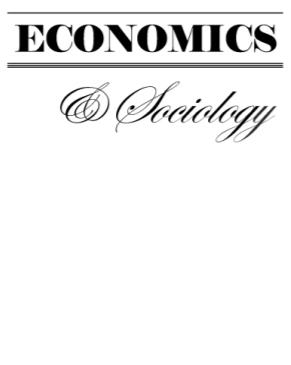DOES THE COVID19 PANDEMIC
CHANGE THE RELATIONSHIP
BETWEEN GOVERNMENT
EXPENDITURES AND ECONOMIC
GROWTH IN AZERBAIJAN?
DOES THE COVID19 PANDEMIC
CHANGE THE RELATIONSHIP
BETWEEN GOVERNMENT
EXPENDITURES AND ECONOMIC
GROWTH IN AZERBAIJAN?
Author(s): Jeyhun Abbasov, Elchin Gulaliyev, Fariz Saleh Ahmadov, Agil Mammadov, İlkin MammadovSubject(s): Politics / Political Sciences, Economy, Political Theory, Politics and society, Socio-Economic Research
Published by: Fundacja Centrum Badań Socjologicznych
Keywords: ARDL modeling approach; cointegration analysis; long-run effect of government spending; capital and current expenditures; fiscal multiplier
Summary/Abstract: This paper investigates the impact of theGovernment’s capital and current expenditures on economicgrowth in Azerbaijan. The estimation strategy of the researchconsists of two directions. First, all estimation approaches wereused for the period of 2005Q1-2019Q4. The estimated modelfor this period is called Model 1. Second, the model which iscalled Model 2 was estimated for whole period of 2005Q1-2021Q1. This approach allows comparing the role of theGovernment expenditures on non-oil economic activity innormal times and during the COVID-19 pandemic inAzerbaijan. Estimations show that coefficients characterizing theimpact of Government current expenditures and capitalexpenditures on non-oil economic growth are almost the samefor both periods. Therefore, we can state that COVID-19pandemic did not affect the structure of the relationship betweenGovernment expenditures and non-oil economic growth.Results show that 1 percent increase in capital and currentexpenditures of state budget increases the real non-oil GDP by0.10 and 0.40 percentage points, respectively. Accordingly, bothcapital and current expenditures of the state budget have positiveimpact on the real non-oil GDP growth for the both periods.This is in contrast to findings in the literature, which argue thatincreasing current expenditures financed by tax hikes lead to alagged decrease in private investment, having an overall negativeimpact on economic growth. We attribute this opposing findingto the Azerbaijani state budget revenue system, which isfinanced by transfers from the State Oil Fund (StabilizationFund). Thus, large government investment and social projectsmostly rely on non-tax sources. Therefore, we argue that positiveimpact of capital and current expenditures of governmentbudget on non-oil GDP seems plausible for Azerbaijan. Anotherresult of our estimation is that expansion of economic opennessaccompanied by non-oil economic growth plunge in Azerbaijan.We interpret this phenomenon with very low share of non-oilexport, where openness is mostly caused by increase in importvolume.
Journal: Economics and Sociology
- Issue Year: 14/2021
- Issue No: 3
- Page Range: 185-204
- Page Count: 20
- Language: English

